Jimmy Choo seeks well-heeled buyer
- Published
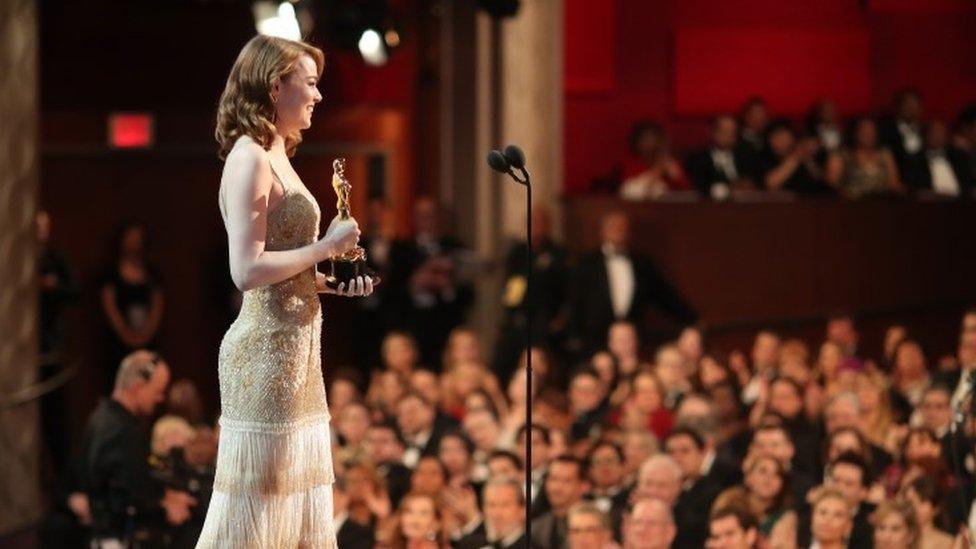
Best foot forward - Jimmy Choo claim Emma Stone as a long time fan
Luxury shoe maker Jimmy Choo is the go-to for celebrities looking to wear a pair of killer heels on the red carpet.
Now the British firm is going on a strut of its own, as its board puts the business up for sale.
Valued at about £700m, analysts believe Jimmy Choo could attract attention from rival luxury houses along with Chinese, Middle Eastern and Russian buyers.
As well as shoes, Jimmy Choo produces a range of luxury goods, but has seen sales slow in recent years.
The move received backing from Jimmy Choo's main shareholder JAB Holdings, which said on Monday it was also prepared to offload Bally, external, the Swiss heritage shoe and handbag-maker.
A sale would be the latest twist for Jimmy Choo, which started as a bespoke shoemaker in east London.

Who is Jimmy Choo?
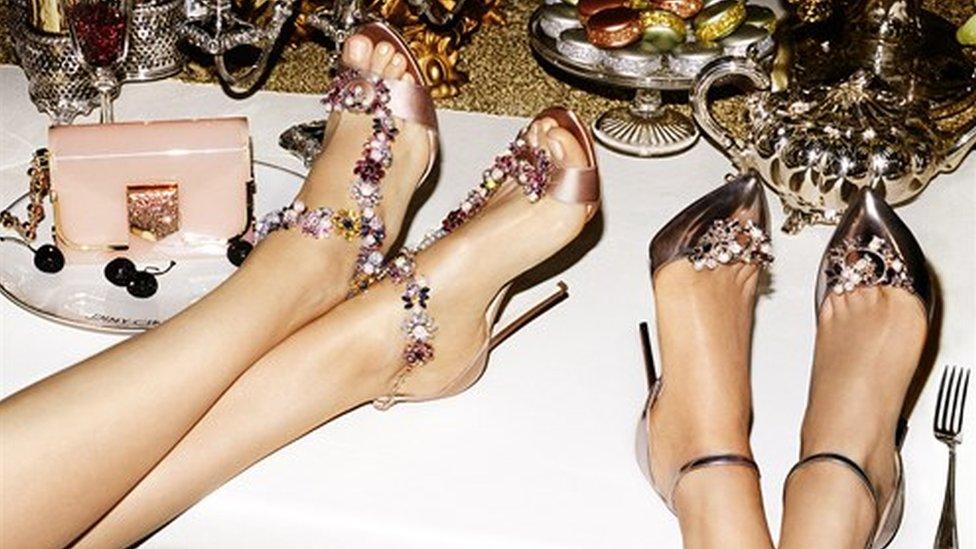
Jimmy Choo sits pretty in its second half trading update despite a "challenging backdrop"
The firm was co-founded by Malaysian shoemaker Jimmy Choo, who trained at the renowned Cordwainers Technical College in London, and former Vogue journalist Tamara Mellon in 1996.
It quickly built up a dedicated client list of musicians, actresses and royalty. The Duchess of Cambridge is a fan of the British shoe designer, as is singer Beyonce and Oscar winning actress Emma Stone.
But it has gone through a number of different owners over the years. Ms Mellon and the first of several different private equity suitors bought out Mr Choo in 2001.
Ten years later Ms Mellon left the business to launch her own clothing line. In 2014, Jimmy Choo listed on the London Stock Exchange, by which time JAB, owned by the German billionaire Reimann family, was the main shareholder.

'Supportive'
Jimmy Choo's shares hit a record high on news of the possible sale, closing up 10.68% in London.
The firm said in a statement, external: "The board of Jimmy Choo announces today that it has decided to conduct a review of the various strategic options open to the company to maximise value for its shareholders and it is seeking offers for the company.
"Jimmy Choo has discussed the strategic review process with its majority shareholder, JAB Luxury GmbH, and JAB Luxury has confirmed that it is supportive of the process."
The fashion house said it had not received any bids yet and was also weighing other options.
JAB Luxury, which owns 68% of Jimmy Choo, said on Monday it backed the move.
But JAB, also an investor in Krispy Kreme doughnuts and household goods giant Reckitt Benckiser, added there was "no certainty that a sale" would take place.
Over the years, Jimmy Choo, which has more than 150 stores worldwide, has moved into men's shoes and launched a wide range of luxury goods, from handbags to sunglasses.
But its sales growth slowed to 2% in 2016 compared with 7% in 2015 and 12% in 2014, analysts at HSBC noted last month.

Analysis: 'Coffee more than killer heels'
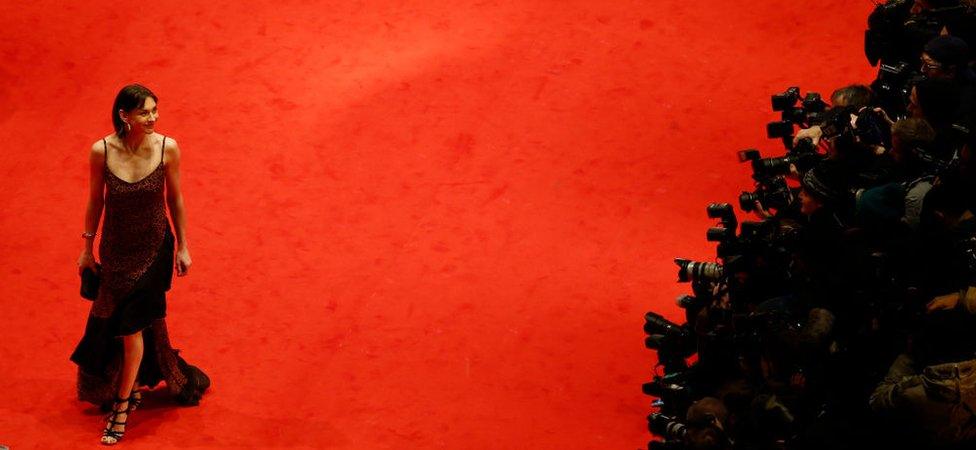
Jimmy Choo shoes are a regular feature on the red carpet
By Emma Simpson, BBC business correspondent
It seems the owner of Jimmy Choo is more interested in coffee than killer heels.
JAB, the investment firm backed by the billionaire Reimann family, has been on a spending spree in recent years.
Just a few weeks ago, it struck a deal to buy the US bakery business, Panera Bread, for $7.5bn (£6bn).
That's in addition to the controlling stakes it's already acquired in brands such as Keurig Green Mountain, Douwe Egberts, and doughnut maker Krispy Kreme.
It all adds up to a fast growing food and beverage empire. So owning a luxury goods company may no longer be a good fit.
It's only three years since Jimmy Choo's stock market flotation. Its share price has had a bumpy ride since 2014. But Jimmy Choo has more recently been outperforming the luxury sector and shares have bounced back.
Not a bad time, perhaps, to put the business up for sale.

- Published2 March 2017
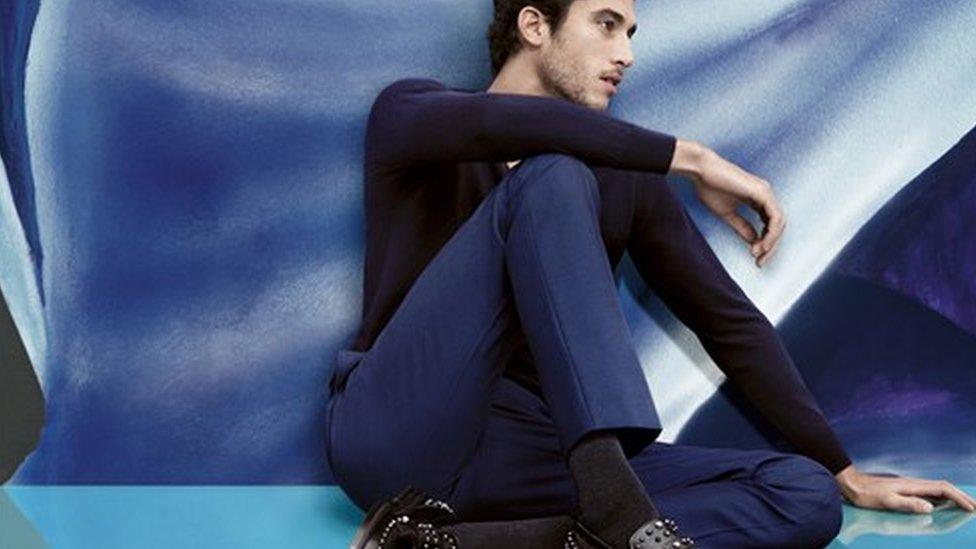
- Published5 April 2017
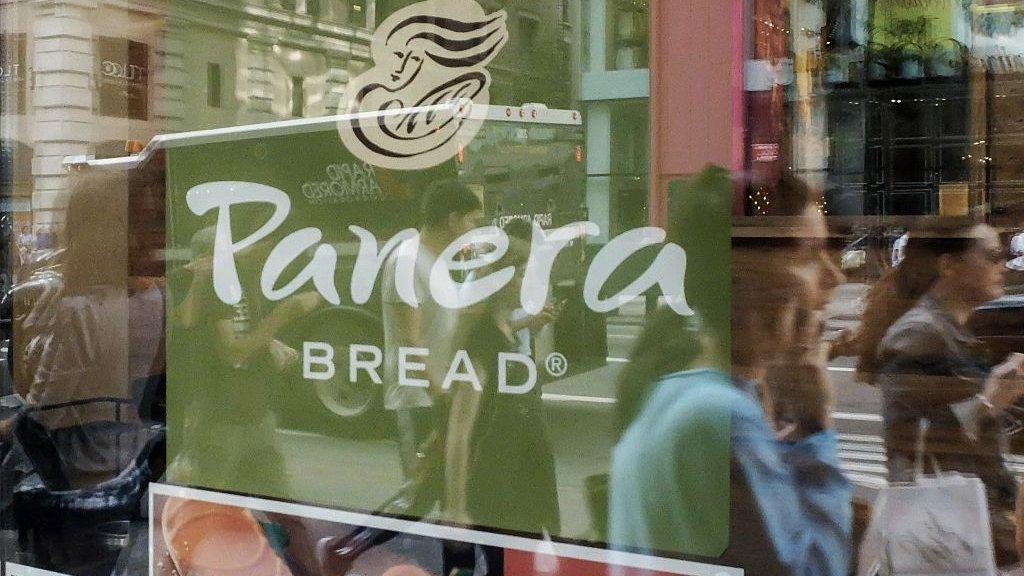
- Published18 November 2016
